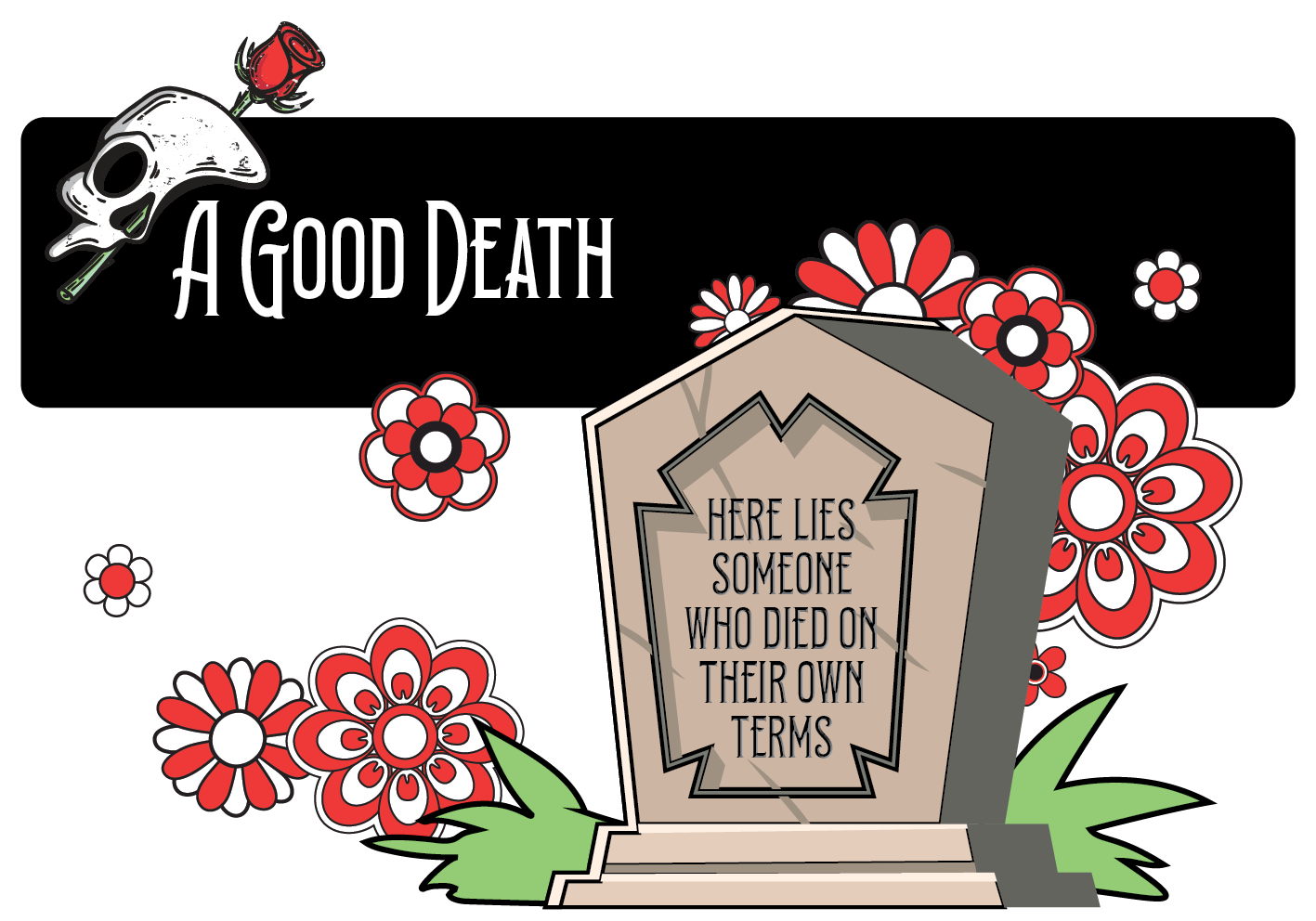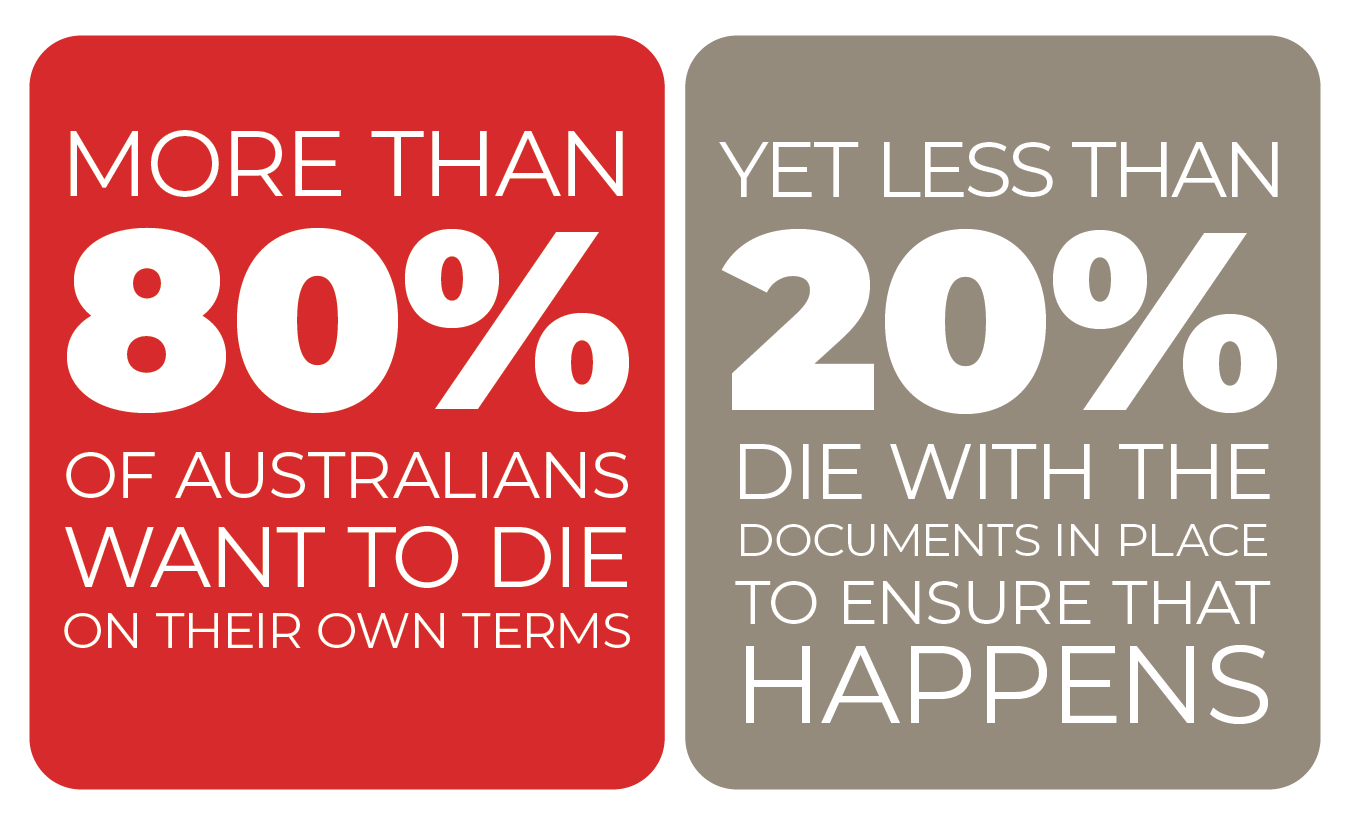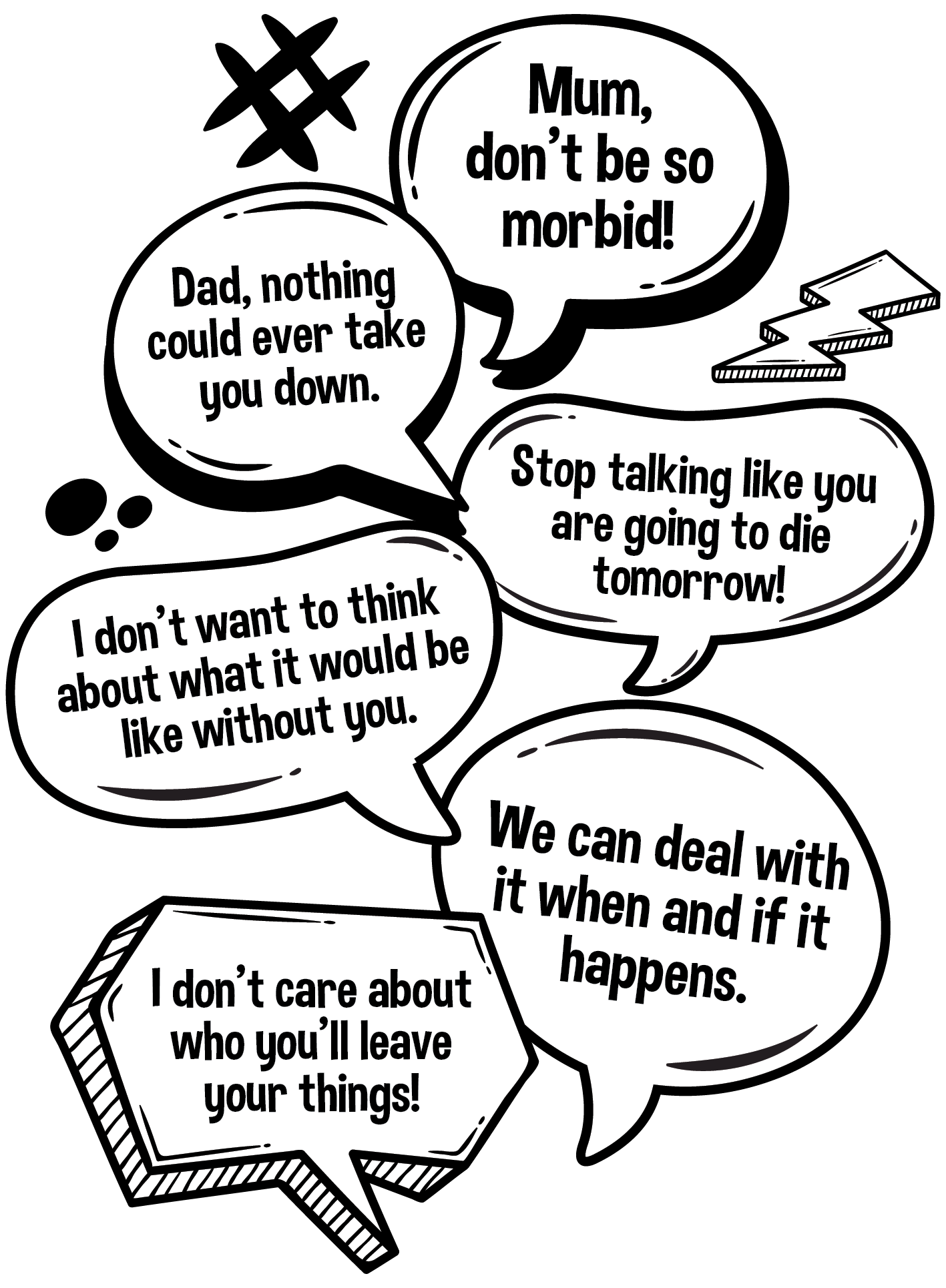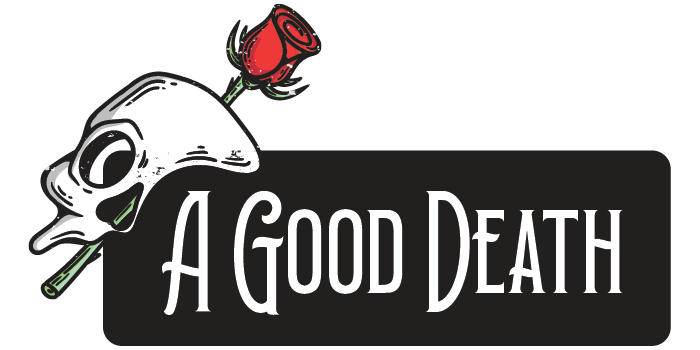

How many times have you shut down a family member’s attempt at a conversation about end-of-life? What if we told you all you’re doing is standing in the spotlight of someone’s last great impression?
We value first impressions
– why not the last?
More than 80% of Australians want to die on their own terms yet less than 20% die with the documents in place to ensure that happens.

How can that be?
1 We assume people are too healthy to die
Maybe old age looks good on our family members. Or because they aren’t elderly, we don’t entertain death can happen to them. We forget that disability, illness and yes, even death, are clubs we can join at any time.
2 We find end-of-life confronting
Humans are funny little critters. We tend to believe that if we ignore death, it might just go away. Or we fail to realise that just because something will happen whether we like it or not, we can still reduce the amount of trauma we experience through proper planning and the right conversations.
3 We have no record of a person’s choices
Your loved one deserves the right to consent to care. They also deserve the right to refuse it. But what if they lose the ability to speak for themselves? If you don’t know what risks a person is willing to take to preserve their dignity, it’s difficult to make the right care choice.
4 We don’t make time for it
Every time you have a conversation about end-of-life planning with a loved one, the greater your ability to deliver that plan when the time comes. Yet, we don’t start early enough to plan properly and become overwhelmed by the process as it occurs.
5 We don’t understand end-of-life
The majority of Australians assume a will and a power of attorney is all they need to have a good death. Yet, most families experience increased trauma, fatigue and the likelihood of family fracture as they care for a dying loved one by not having advance care plans and directives in place.
6 We believe the myths and hype
Sadly, many people have been sold the idea that planning for end-of-life means they are far more vulnerable to losing their life prematurely. Or that to talk about death is morbid and mawkish behaviour. We fail to acknowledge planning for our end-of-life is no different to planning for any other stage of our life.
Together, we can change this
Join us as we explore what it means to give the gift of a good death. All while stepping out of the spotlight for your loved one so they can make their great last impression.

